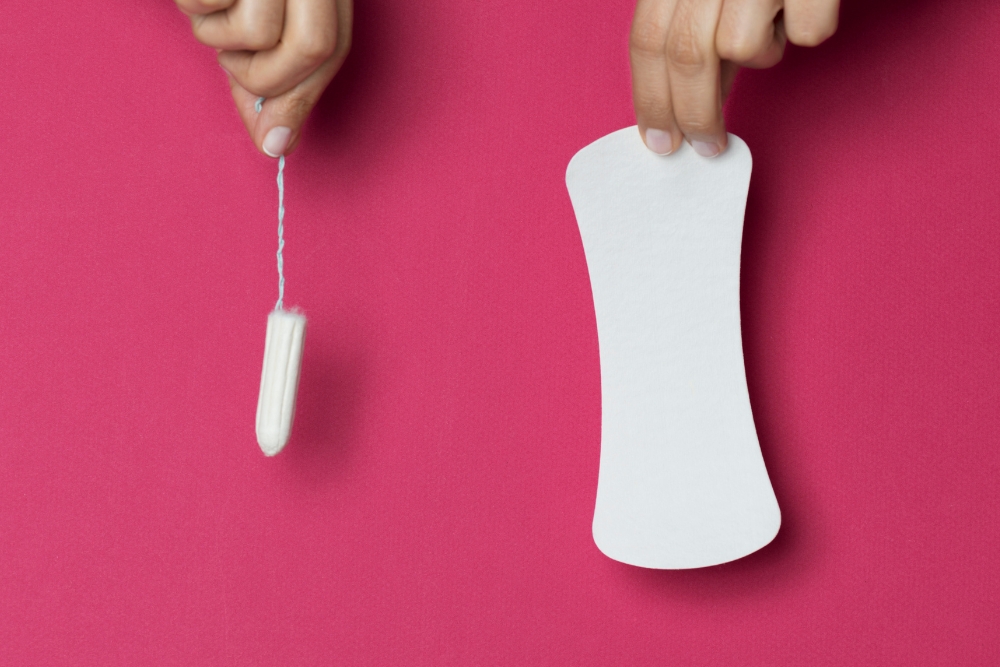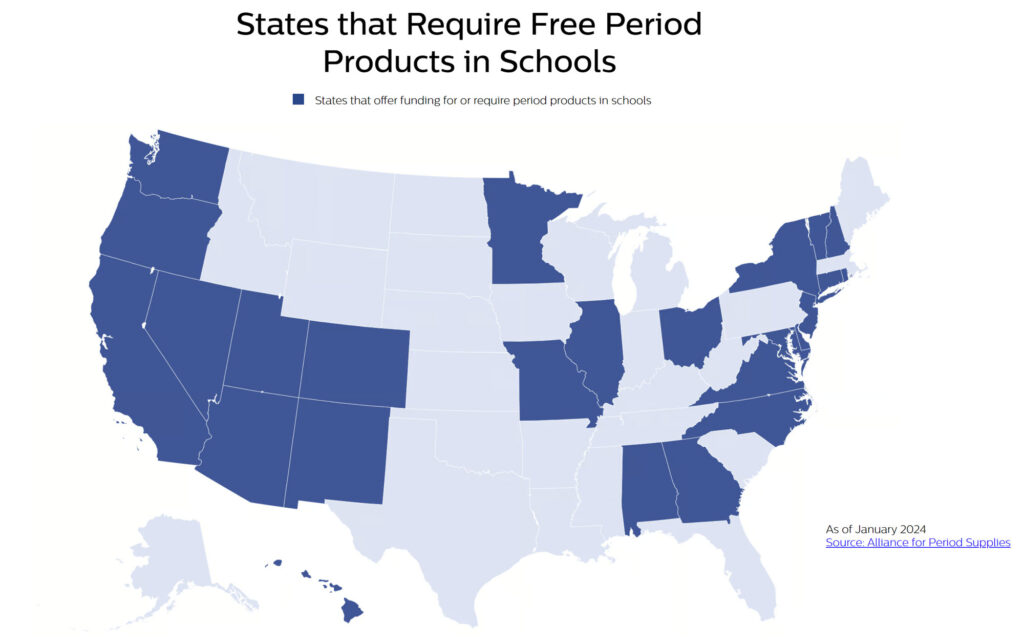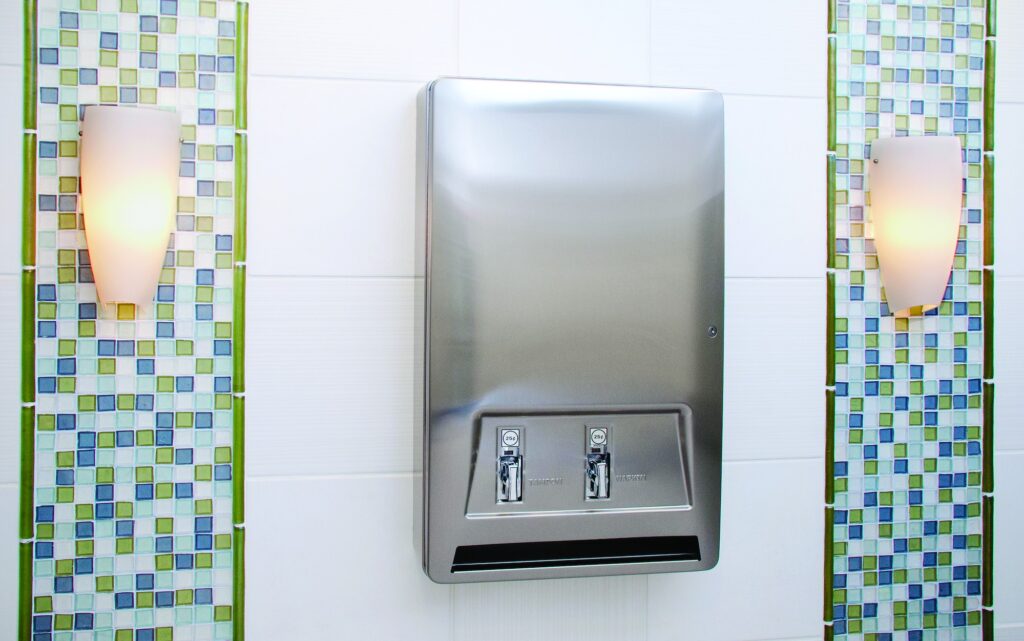Do your facility’s restrooms comply with current—and growing—legal requirements for free access to menstrual care products?

Recent legislation on menstruation by state and federal legislatures has brought attention to the rising issue of menstrual equity and period poverty in the United States. Period poverty, which is characterized by inadequate access to menstrual products and insufficient education about menstruation, impacts many individuals globally, including those in the United States.
For some people, being able to afford menstrual products is an ongoing issue. Some may need them unexpectedly. Others may feel embarrassed or ashamed to have to ask for period products when they need them, especially in a public environment.
A recent study found that 86% of people who menstruate have gotten their period unexpectedly while out in public and are left without proper supplies in commercial restrooms.
This societal reality creates an opportunity for public facilities to help provide these products to its building occupants and customers.
Meeting Current Legal Requirements for Menstrual Products
Over the last 10 years, at least 30 states in the U.S. have adopted legislation that offers access to free menstrual care products to marginalized communities, such as schools, correctional facilities, and homeless shelters. Approximately 25 states currently require public schools to provide free menstrual care to students in middle schools and high schools, and several more have recently introduced bills to provide free menstrual products in schools. In Canada, legislation passed last year made it mandatory for all federally regulated workplaces to begin providing free menstrual products, too.

As the legislative landscape continues to evolve, state officials and policy leaders look to widen the scope of menstrual legislation to cultivate a society where menstruation and the products needed are provided and available to all individuals no matter the circumstance.
Empowering Convenience with Reliable Products
Facilities managers can address this issue of providing access to menstrual care products by implementing cost-effective dispensers that are secure and hygienic for all users and businesses. Many washroom product manufacturers have identified menstrual care and period poverty as an issue and—considering the growing legislation—now offer a variety of dispensing solutions to help businesses supply menstrual products.
Newly designed napkin and tampon dispensers and mounted disposal products are two forms of menstrual care products that can help facilities managers provide products to users and customers who are caught unexpectedly without their needed products. There are a variety of contemporary-looking product models and styles that fit the needs of every restroom application, including recessed, surface-mounted solutions. These stainless steel models provide easy, convenient access and are reliable for all to use.

Keeping in mind the budgetary constraints and logistics of implementation, many manufacturers’ products are cost-effective and can easily be placed in multiple locations across buildings. Most dispensers can be mounted to walls and take up little space within the existing restroom, requiring few design reconsiderations from facilities managers. Product dispensers can be installed in any restroom, and they cost individuals little to nothing to access the supplied products such as pads, tampons, and sanitary napkins.
Facilities managers can also protect their businesses and employees from germs and pathogens by implementing disposal receptacles which provide a hygienic and inconspicuous way for individuals to dispose of used products. These methods of disposal also reduce the possibility of users creating plumbing issues for facilities by flushing sanitary products plumbing down the toilet.
The base idea for these products is convenience, not only for restroom users, but also for facilities managers and their staff. These products can be refilled or disposed of easily, providing for individuals when needed, while also optimizing the user experience of facility restrooms. By providing adequate menstrual product vendors and disposal receptacles, facilities managers can accommodate the needs of customers, employees, and other users, while also promoting inclusivity and hygienic practices.
With the broadening legislation in the U.S., it is a good idea for facilities managers to prepare their facilities with menstrual care products. Further, eliminating financial barriers and ensuring availability of needed products in critical settings promotes well-being, equality, and an increased user experience.
Kris Alderson, MBA, LEED AP, is senior marketing manager for Bradley Company, the 100-year-old global manufacturer of commercial plumbing fixtures, washroom accessories, emergency safety fixtures, and electric tankless water heaters, now a division of Watts Water Technologies.
